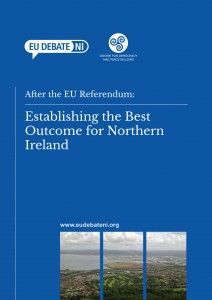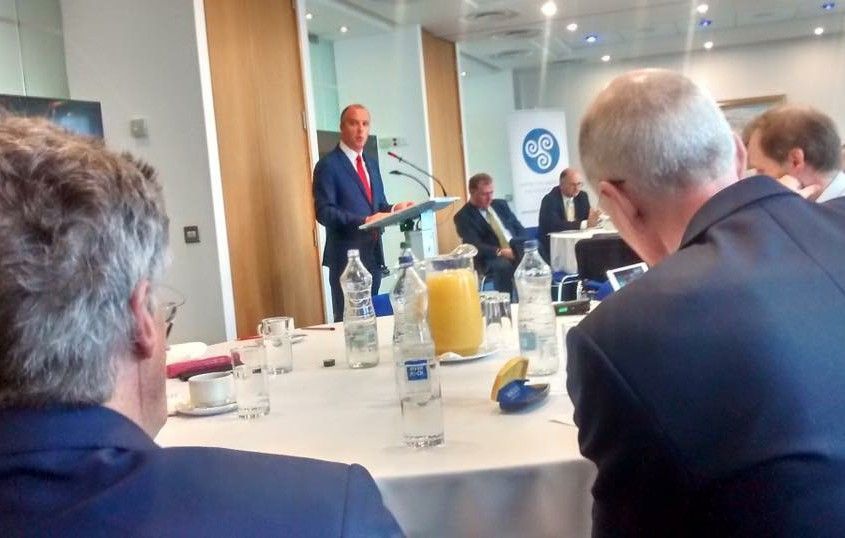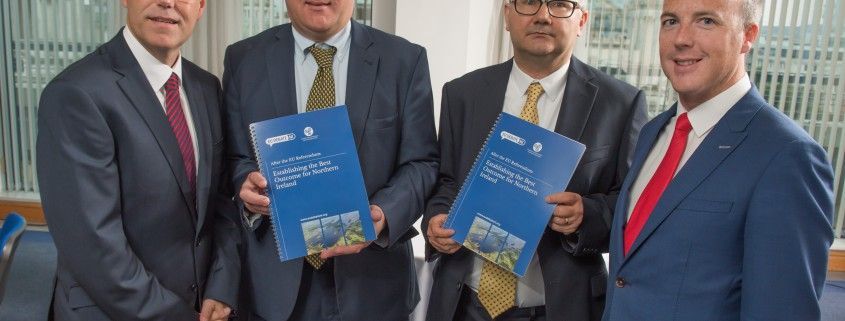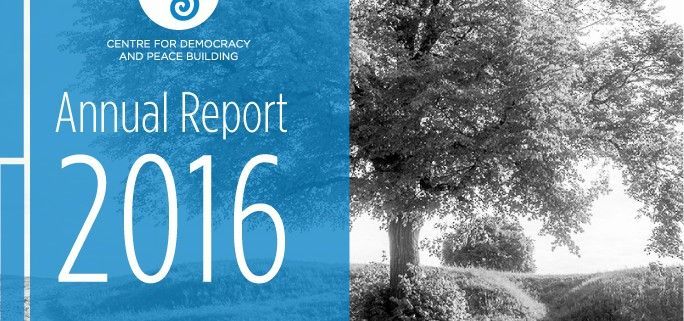Centre for Democracy & Peace Building launch post EU Referendum programme to establish best outcome for NI
 The Centre for Democracy and Peace Building (CDPB) launched the next phase of their EU Debate NI Programme this morning with an event hosted by Ulster Bank.
The Centre for Democracy and Peace Building (CDPB) launched the next phase of their EU Debate NI Programme this morning with an event hosted by Ulster Bank.
In partnership with Professor David Phinnemore and Dr Lee McGowan from Queen’s University Belfast, the Centre has produced a paper entitled “After the referendum: Establishing the best outcome for Northern Ireland”.
Following the decision of the UK to leave the EU, the paper explores where we are, the potential options for Northern Ireland and the issues that we must consider in NI as a result of this referendum.
Conor Houston, Programme Director at CDPB said “The decision of the UK electorate was to change the relationship between the UK and EU. That is why CDPB are continuing our important work with EU Debate NI. Now more than ever we need to have an informed and inclusive conversation across the private, public and community sectors to understand the practical implications of the decision to leave the EU and how to achieve an outcome that is in the interests of all people. This means carefully debating the kind of relationship we want to have with the EU and exploring new relationships with other countries around the world.”
He continued “CDPB acknowledge the support of the Joseph Rowntree Charitable Trust who have generously supported the EU Debate NI programme and without whom we would not have been able to continue our important work with this programme”.


CDPB are currently developing an online toolkit allowing interested individuals and groups to understand the issues and to help host events that allow communities to consider the kind of relationships they envisage with the EU.
Professor David Phinnemore told an audience from across the private, public and community sectors: “The outcome of the EU referendum has created considerable uncertainty about the future of the UK’s relationship with the EU. It has raised questions about how any new relationship will be negotiated and whether and how it can satisfactorily accommodate the interests and preferences of the people of Northern Ireland. There are many issues at stake and many unanswered questions. It is important that the range of challenges is fully recognised, solutions identified and the priorities for Northern Ireland effectively promoted such that the best possible outcome to the prospect of Brexit is secured.”
The paper is available to download at www.democracyandpeace.org/publications











